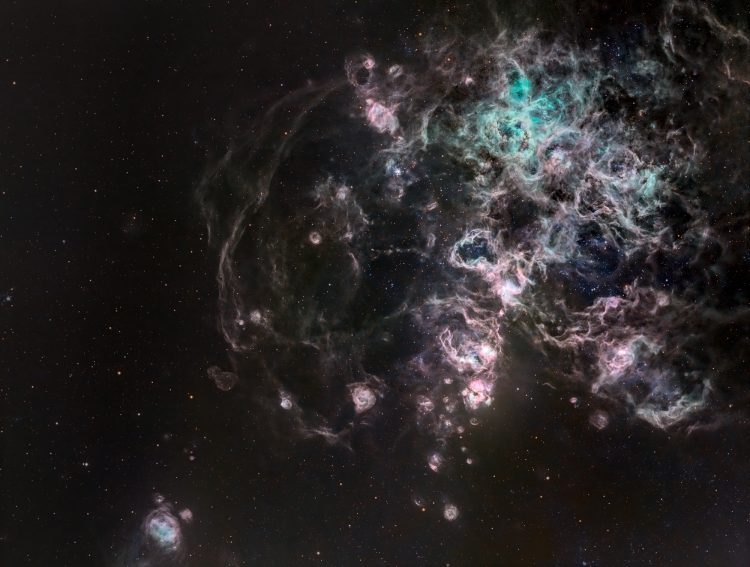Introduction
The Roman Space Telescope, named after the renowned astronomer and physicist Edwin Hubble, represents a monumental leap forward in our quest to unravel the mysteries of the universe. Slated for launch in the mid-2020s, this powerful observatory promises to shed light on some of the most profound questions in cosmology and astrophysics. One of its key missions is to explore the “cosmic dawn”—the era when the first stars and galaxies formed and began to shape the universe as we know it. This article provides an in-depth examination of the Roman Space Telescope, its design and objectives, its potential scientific contributions, and the broader implications of its findings.
Historical Context and Development
1. The Evolution of Space Telescopes
The journey towards the Roman Space Telescope has been marked by significant milestones in space-based astronomy. From the early days of space telescopes to the development of advanced observatories, each step has contributed to our understanding of the cosmos.
- Hubble Space Telescope: Launched in 1990, the Hubble Space Telescope revolutionized astronomy with its high-resolution images and broad spectral coverage. Hubble’s observations of distant galaxies, nebulae, and other cosmic phenomena provided critical insights into the universe’s expansion, the formation of stars, and the nature of dark matter and dark energy.
- James Webb Space Telescope: Scheduled for launch in late 2021, the James Webb Space Telescope (JWST) represents the next generation of space observatories. Its infrared capabilities are designed to probe the earliest galaxies, study exoplanet atmospheres, and explore the formation of stars and planetary systems. JWST’s findings will complement those of the Roman Space Telescope, providing a more complete picture of cosmic history.
2. The Genesis of the Roman Space Telescope
The Roman Space Telescope, originally known as the Wide Field Infrared Survey Telescope (WFIRST), was conceived to address key questions about the universe that remained unanswered by Hubble and JWST.
- Scientific Objectives: The Roman Space Telescope aims to explore the nature of dark energy, study the formation and evolution of galaxies, and investigate the early universe’s structure. Its wide-field imaging capabilities and spectroscopic instruments will provide unprecedented data on these topics.
- Mission Concept: The mission concept for the Roman Space Telescope was developed by NASA’s astrophysics division and involved extensive planning and collaboration with the scientific community. The telescope is designed to leverage advancements in technology to achieve its ambitious scientific goals.
Design and Capabilities
1. Optical and Instrumentation Design
The Roman Space Telescope’s design reflects its mission objectives, with advanced optical systems and cutting-edge instruments tailored for its scientific goals.
- Primary Mirror: The telescope features a primary mirror with a diameter of 2.4 meters (7.9 feet), the same size as Hubble’s mirror. This mirror will collect and focus light from distant cosmic sources, enabling high-resolution imaging and spectroscopy.
- Wide Field Imager: One of the telescope’s key instruments is the Wide Field Instrument (WFI), designed to capture broad, high-resolution images of the sky. The WFI will allow scientists to survey large regions of the universe and identify distant galaxies, supernovae, and other celestial objects.
- Coronagraph: The Roman Space Telescope will also be equipped with a coronagraph, an instrument designed to block out the light from bright stars and reveal the faint light from exoplanets and their atmospheres. This capability will be essential for studying planetary systems and searching for signs of habitability.
2. Observational Strategies
The Roman Space Telescope will employ several observational strategies to achieve its scientific objectives.
- Wide-Field Surveys: The telescope will conduct wide-field surveys of the sky, mapping large regions and providing data on the distribution and properties of galaxies, dark matter, and dark energy. These surveys will help answer fundamental questions about the universe’s structure and evolution.
- Deep Imaging: In addition to wide-field surveys, the Roman Space Telescope will perform deep imaging of specific regions of the sky. This will allow scientists to study the formation and evolution of individual galaxies and other cosmic structures in greater detail.
- Spectroscopic Observations: The telescope’s spectroscopic capabilities will enable detailed analysis of the light from distant objects, providing insights into their composition, temperature, and other physical properties. Spectroscopy will be crucial for understanding the early universe’s conditions and the nature of dark energy.
Scientific Goals and Implications
1. Exploring Dark Energy
One of the primary goals of the Roman Space Telescope is to investigate the nature of dark energy, a mysterious force driving the accelerated expansion of the universe.
- Dark Energy Surveys: The telescope will conduct large-scale surveys to measure the expansion rate of the universe and the distribution of dark energy. By analyzing the light from distant supernovae and galaxy clusters, scientists will gain insights into how dark energy influences cosmic expansion.
- Galaxy Evolution: The Roman Space Telescope will also study the evolution of galaxies over cosmic time. By observing galaxies at different stages of development, researchers can learn how dark energy has affected their formation and growth.
2. Studying the Cosmic Dawn
The cosmic dawn refers to the period shortly after the Big Bang when the first stars and galaxies formed and began to illuminate the universe.
- First Light Observations: The Roman Space Telescope will aim to observe the first light emitted by the earliest stars and galaxies. These observations will provide valuable information about the conditions that existed in the early universe and the processes that led to the formation of cosmic structures.
- Galaxy Formation and Evolution: By studying the formation and evolution of early galaxies, the telescope will shed light on how these primordial objects evolved into the complex structures observed in the present-day universe. This research will help scientists understand the processes that shaped the universe’s structure.
3. Investigating Exoplanets and Habitability
The Roman Space Telescope’s coronagraph will enable the study of exoplanets and their atmospheres, providing insights into the potential habitability of distant worlds.
- Exoplanet Detection: The coronagraph will help detect and characterize exoplanets orbiting distant stars. By analyzing the light from these planets, scientists can determine their size, composition, and other properties.
- Atmospheric Studies: The telescope will also study the atmospheres of exoplanets, searching for signs of water vapor, oxygen, and other molecules associated with habitability. This research will contribute to our understanding of the conditions required for life beyond Earth.

Technological Innovations and Challenges
1. Engineering and Technology
The development of the Roman Space Telescope involves several engineering and technological challenges, requiring innovative solutions to achieve its scientific goals.
- Optical System Precision: The telescope’s optical system must be designed with high precision to ensure accurate imaging and spectroscopy. This involves advanced manufacturing techniques and rigorous testing to achieve the required performance.
- Spacecraft Design: The spacecraft carrying the telescope must be designed to support its operations in space, including power generation, thermal control, and communication systems. Ensuring the spacecraft’s reliability and longevity is critical for the success of the mission.
2. Mission Operations
The operations of the Roman Space Telescope will involve complex planning and coordination to maximize its scientific return.
- Data Management: The telescope will generate vast amounts of data, requiring efficient data management and processing systems. This includes storing, analyzing, and distributing the data to the scientific community.
- Observation Scheduling: The telescope’s observations will be scheduled to optimize its scientific output. This involves coordinating with other observatories and managing the telescope’s time to achieve its mission objectives.
Collaboration and Community Impact
1. International Collaboration
The Roman Space Telescope mission involves collaboration with international partners and space agencies, enhancing its scientific capabilities and global impact.
- Global Partnerships: NASA is working with international space agencies and research institutions to support the mission. These collaborations provide additional resources, expertise, and access to complementary observational capabilities.
- Scientific Community: The telescope’s data will be made available to the global scientific community, enabling researchers worldwide to contribute to its analysis and interpretation. This collaborative approach fosters international cooperation and advances our understanding of the universe.
2. Educational Outreach and Public Engagement
The Roman Space Telescope’s mission will also include educational outreach and public engagement efforts to inspire and educate the next generation of scientists and explorers.
- Educational Programs: NASA will develop educational programs and resources related to the Roman Space Telescope, including interactive tools, lesson plans, and outreach activities. These programs aim to engage students and educators in space science and inspire future careers in STEM fields.
- Public Communication: The mission will be communicated through various media channels, including websites, social media, and public lectures. These efforts will help raise awareness of the telescope’s discoveries and foster public interest in space exploration.
Looking to the Future
The Roman Space Telescope represents a significant advancement in our quest to understand the universe. Its mission to explore the cosmic dawn, investigate dark energy, and study exoplanets promises to yield groundbreaking discoveries and advance our knowledge of the cosmos.
1. Scientific Discoveries
The data collected by the Roman Space Telescope will provide valuable insights into the fundamental processes that shaped the universe. Its findings will contribute to our understanding of galaxy formation, cosmic expansion, and the potential for life beyond Earth.
2. Future Missions
The success of the Roman Space Telescope will pave the way for future space missions and observatories. The advancements in technology and knowledge gained











































Discussion about this post